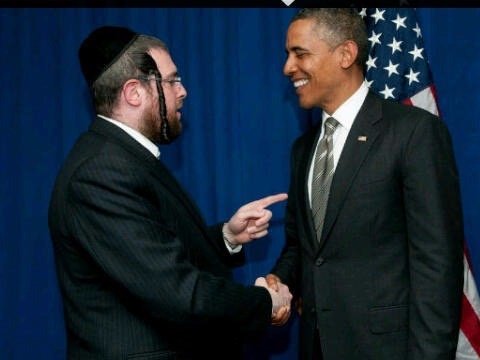Rabbi Abe Friedman - Anchor of Hope
/Rabbi Abe Friedman - Anchor of Hope
By Daniel Del Valle, George Beck, Ph.D. and Rick Vanderclock
Blue Magazine recently spoke with Rabbi Abe Friedman — a well-revered police chaplain for multiple agencies. Over the past two and one half decades, Rabbi Friedman has done extensive work for the law enforcement community. What unfolded from our conversations is a story like no other here. Blue Magazine salutes Rabbi Friedman for his selfless life of service to others. We appreciate you.
The BLUE Magazine: Tell us about your work as a rabbi working with the law enforcement community?
Rabbi Friedman: So, my late father, who passed away 10 years ago, was a chaplain for law enforcement. I grew up in an environment where chaplaincy was the life and the fabric of my family helping out law enforcement. I grew up in upstate New York, and I've seen my father in action helping law enforcement. Today, I think the law enforcement community knows how beneficial it is to work with a chaplain, work with a rabbi, work with a pastor or a clergy or a community leader. I watched my father and he was my mentor and role model as to how you need to make a mark in this life by helping others. Because of the mission that my father started, changing people's lives for the better is something that I will do, hopefully till my last day.
The BLUE Magazine: Very intriguing. Tell us more.
Rabbi Friedman: So, for example, a chaplain's role is from praying with somebody before he passes away until officiating at a police officer's funeral, making sure that the family members are notified correctly upon a death of a officer is another very difficult and challenging duty that a chaplain has. Chaplains have been on the forefront when a crisis happens. Obviously, law enforcement are very engaged and involved. And in solving a crime, investigating a crime, handling a situation, traffic control and many other duties and obligations. But the life of a chaplain and the duties of a chaplain sometimes get very difficult after the investigation is over. For example, going to notify a family that their loved one passed away in a car accident or in a shooting, that’s one of the most difficult and challenging things to do as a chaplain. So that’s one of our roles. Second thing is chaplains are called upon by many officers or agents who go through difficult things in their life. Suicidal thoughts. Domestic violence troubles at home. Alcohol addiction. Many other difficult situations that chaplains are called anonymously.
The BLUE Magazine: So what’s your reach like? Obviously you’re in a state level, the federal level, like what is kind of work are you doing in terms of your reach as a chaplain?
Rabbi Friedman: I started in a small police department in upstate New York, a sheriff’s department that my father was a chaplain for a long time. And I helped my father visiting the inmates and praying with inmates that asked for prayer services. That’s how I started this going back 25 years ago and ever since. With the help of God, I think that law enforcement on all levels, federal, state and local levels, have realized the benefit of having a chaplain on board. So I’ve been dealing with agencies such as on the federal level. I work with the U.S. Attorney’s office, with the FBI. I’m a chaplain with the Department of Justice. And I work with my local police department or the NYPD. Also, New Jersey State Police, which is statewide. I also work with many correctional facilities as a chaplain where I get invited to a sensitive situation to speak to an inmate that has issues or speak to an officer or a deputy that’s going through a hard time
The BLUE Magazine: Let’s continue on that idea of officers who are going through some difficult times or some maybe have stresses at work, either from on the job or personal situations.
Rabbi Friedman: My proudest accomplishment that I can say stand here today in front of you and say that I, with the help of God, saved 241 individuals from committing suicide over the past 20 years. I think it’s God’s calling.
The BLUE Magazine: How does you being a rabbi affect the relationship with an officer who is not Jewish?
Rabbi Friedman: It’s funny you ask that, because if I had to make a survey in my head over the past 20 years on the percentages of the culture or the background that I helped in law enforcement, I can say that 80% of the officers — law enforcement members I helped were not from the Jewish faith. And I was trying to think about, why would a person, an African American agent or officer or a Christian or any other faith reach out to a rabbi. And I think the answer is that sometimes they feel even more comfortable to reach out when you go through something difficult. You feel you feel you’re on your lowest stage in your life and you would not want to open up to somebody of the same faith perhaps thinking that they will look upon him or her as a failure? So by having another faith such as a rabbi deal with the problem, I think that gives the officer some comfort level.
The BLUE Magazine: So you would encourage anyone even from different faiths to reach out to you?
Rabbi Friedman: Absolutely. And to be quite frank, me as being a Jewish chaplain, a rabbi, I’ve reached out to pastors and imams and asked for guidance myself. I’m not embarrassed. This is God’s calling. We’re all children of God. We’re doing God’s work and we all are on one team. I’m not 100% perfect and I’m not 100% talented. And I can’t resolve and solve the world’s problem on my own. We all need to work together to do so.
The BLUE Magazine: Blue magazine with our partner nonprofit Moment of Silence has hosted many events where our main goal is to combat blue suicide. From your perspective, what is it regarding the spiritual component that can change an officer’s direction, somebody who’s heading down toward a very dark despair, possibly ending their life?
Rabbi Friedman: Great question. Have you ever realized that inmates or someone who is incarcerated all of a sudden discover God. Does it make sense? He’s in jail for murder or killing a baby — God forbid. Or his own wife. My God… right? I think that’s going to answer your question. Spirituality sometimes comes when you are on your lowest level in life — when you have nothing else to hold on.
Obviously, me being a person of faith I pray and embrace God every single day. I know that God is leading me. And I pray that he should lead me every single day. When you get to a level in life before you pass away, you can see if you watch these horrific plane crashes, you see everybody prays, regardless who you are, regardless if you believe in God or not, why there’s not one person in that situation that sits and says, hey, I don’t believe in God, why should I pray? Because you get to a level in life that all you can do now is pray and surrender — surrender to God. So the answer to your question is spirituality when you are in some level in life that we should never be, you really feel sometimes that all you have is God. That’s the only way that someone can ever get out of a bad situation and get lifted up. It’s the only way.
And for those members that seemingly don’t believe in a God, I always say, be your own guy — be you, pray and speak to yourself. Sometimes people need to reconcile themselves and say you know what this is the situation I am in. And let me lift myself up. Let me bring myself, my soul, into a peaceful place in life. And you could do this in many different ways. Pray. Exercise. Do something that will bring your body, mind and soul and heart and soul to a place that you feel at peace and you feel that you can get lifted up. So, regardless of your faith, regardless of who you believe and don’t believe, find peace in your life. And it’s so, so important that everyone, even, you know, a person of faith like me, I go through challenges. Sometimes prayer does not help me get lifted up. But you know what helps? Just thinking of my situation. Thinking of my life. Obviously positive thoughts help bring positive thoughts. And count your blessings and that will lift you up.
The BLUE Magazine: Picture an officer today who is going to end his or her life in that deep, dark despair. Take the opportunity right now to speak directly into that officer’s mind. What exactly would you say?
Rabbi Friedman: Two most important things that help me. And every situation is different. Obviously, one, bring your mind, your thought process out of the dark place and think about all the positive things in life. And every person can find something positive that happened to them. Even if you’re in a dark place, even let’s say it’s true that you’re a failure, you can still find something to bring hope. You have a beautiful wife, you have children, you have grandkids. Your parents bring memories in your brain that’s going to put you in a place in life that’s going to bring you joy. That’s the first thing you need to get your brain out of the situation. Think of the consequences you’re going to put not you but what your family through after you’re gone. If you continue to do the horrific decision that you’re about to do, is that fair to your loved ones, to your father, to your mother, to your brother, to your son, to your wife or your daughter? How will they remember you?
And most of the time, 99% of the time, again, there are situations that unfortunately, you’re dealing with severe mental damages and mental illnesses that an officer or a member of law enforcement needs to overcome and needs professional medical help. But for the most part, somebody that has that temporary thing that didn’t go well for them and all of a sudden they want to end their life, I really highly encourage them to look at the positive things and count our blessings that will take them out to a better place. We need to buy time in these difficult moments. Time is our biggest victory of those moments.
The BLUE Magazine: Chaplain, you mentioned you go through challenges. What are some examples of challenges you go through?
Rabbi Friedman: The two biggest challenges for me as a chaplain, I can’t speak for others, but I think others can probably attest to what I’m about to say. First, dealing with a lot of pain, a lot of suffering and sadness — hearing people cry, hearing and seeing families suffer and go through hard times, sometimes takes a big toll on me. So that’s challenge number one. The second challenge is being rejected. That hurts a lot. Sometimes the rejection of hey, you know who needs a rabbi? Why is a rabbi here? You know, rabbi, you’re not an officer. And that rejection knocks me down and knocks me down badly. So those are the two challenges that challenge that a chaplain.
The BLUE Magazine: You said that you saved 241 police officers from committing suicide, which is amazing. Thank you for what you’ve done. Often time officers feel intimidated to speak. Officers are worried that their administration is going to find out that they’re having troubles. Do you keep everything that’s spoken to you confidential?
Rabbi Friedman: The first thing that you need is trust. If you don’t have trust, you lose. A rabbi, a pastor, and a man knows a lot more than your own family member about you and you need to remember that if I will even once go to a superior, let’s say a trooper will call me that he has trouble and potentially considering committing suicide. God forbid, if I go and leak that out or I go for even for rightful reasons, tell his colonel or his captain or his chief, that’s going to spread like wildfire. And then there’s no way I can be a rabbi sitting with you here after 25 years. and the community still trusts me if I didn’t keep everything confidential. So I want that officer to understand that if I don’t have that trust, I have absolutely nothing — that I’d lose everything that I ever worked for. So the officer can trust me that I’m on his or her side. All I want is to get them through it. And the worst thing for me to do is to go and speak to their bosses and then potentially destroy their career or make it worse. That’s not my mission.
The BLUE Magazine: What are your personal goals? What would you like to see accomplished?
Rabbi Friedman: My mission is to spread kindness. Build bridges between the communities and the law enforcement and then stand united against hate. Unfortunately, every community, regardless of your faith, suffers from hate crime, hate and bias crimes. And I think that is a lot now because of COVID. People lost jobs, people lost loved ones, and they’re not mentally stable. And the first thing they would do is turn against somebody who’s different, different faith of you. And that’s why I believe there’s a huge increase in hate crimes all over the country. Anti-Semitism is on the rise. I think last year, 2022 was recorded one of the highest numbers of incidents against the Jewish faith. So my mission is to stand united against hate, to root out hate, because those who hate one faith hate all. They don’t discriminate. They don’t like an African American more than they like a Jewish rabbi. If you have hate, haters will hate and will hate equally. So if we can stand united, one voice, regardless of your faith, that would be one of my proudest marks and missions in life — to work together with all faiths, to make it a better place, a place to live, and obviously spread kindness, help out people, and help out those members of law enforcement in need. And I’ll be very happy if I can. Just those two or three missions accomplished the rest of my life will be very happy. Very productive.
















